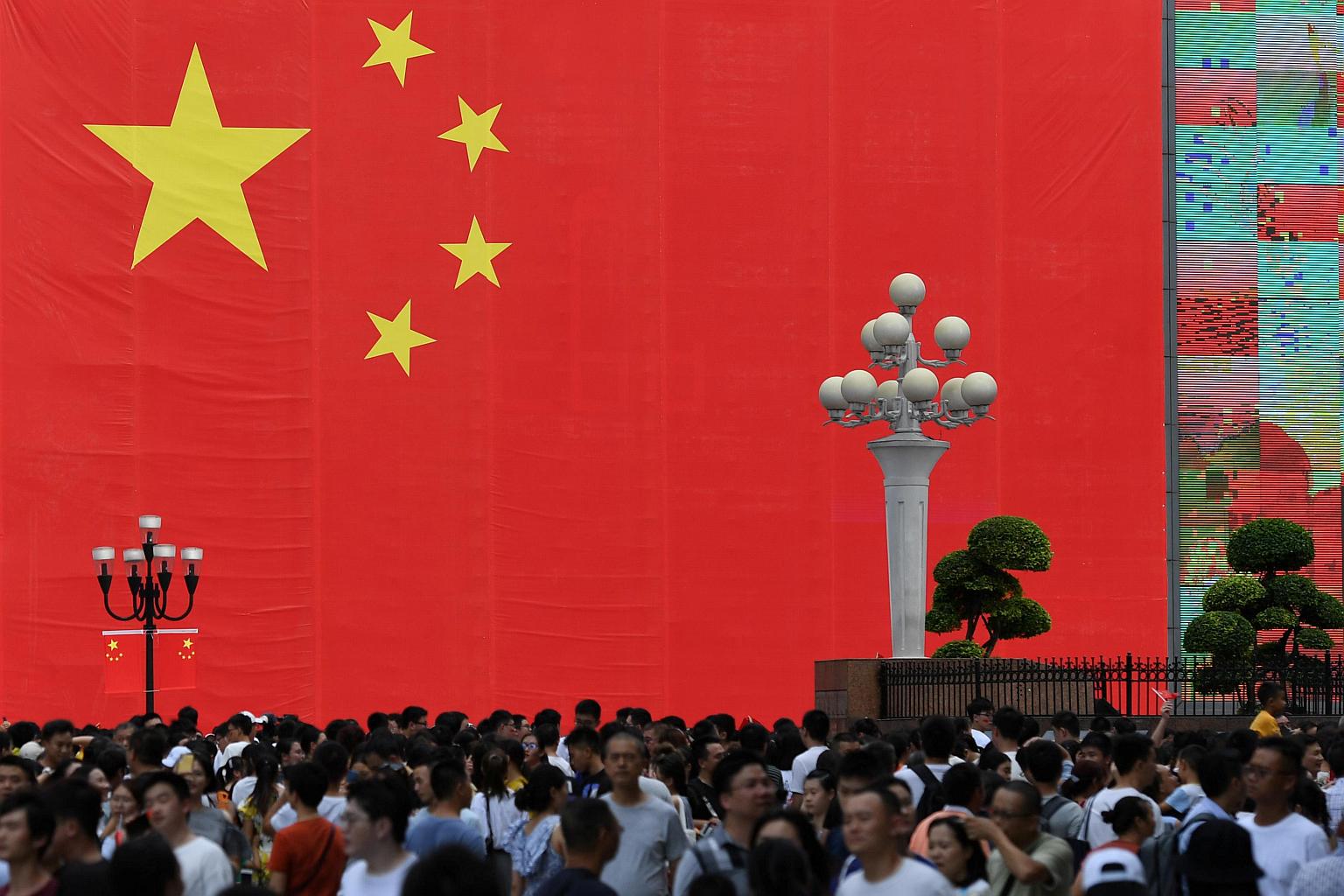Taiwan dismayed as Pacific island of Kiribati switches to Beijing
Sign up now: Get insights on Asia's fast-moving developments

Kiribati is the seventh country Taiwan will lose as a diplomatic ally since President Tsai Ing-wen came to office in 2016.
PHOTO: REUTERS
Follow topic:
TAIPEI (AFP, REUTERS) - Taiwan lashed out at China on Friday (Sept 20) after the tiny island nation of Kiribati switched its recognition to Beijing, the second diplomatic defection in the strategically important Pacific in less than a week.
The move is another coup for Beijing just weeks before it celebrates the 70th anniversary of the founding of the People's Republic of China.
It comes four days after the Solomon Islands made the same decision, and leaves Taiwan more isolated than ever with just 15 states left which recognise it.
At a hastily arranged press conference, Taiwan's President Tsai Ing-wen said Kiribati's decision was a "mistake", adding that the country of just over 100,000 people had "given up a sincere friend and chosen to be China's chess piece".
China on Friday praised Kiribati for cutting ties with Taiwan.
Beijing "highly appreciates the decision to resume diplomatic relations with China", foreign ministry spokesman Geng Shuang said at a press briefing on Friday.
Taiwan, where Kuomintang (KMT) forces fled from mainland to in 1949 after being defeated in a civil war, is seen by China as a renegade province.
In the last decade, only largely impoverished countries in Latin America and the Pacific have remained loyal to Taiwan. The only European state to still recognise Taiwan is the Vatican.
Beijing stepped up its campaign to diplomatically isolate Taiwan after Tsai's 2016 election because she comes from the Democratic Progressive Party (DPP) that refuses to recognise the "1992 Consensus" which contains the "one China, different interpretations" principle.
China offered airplanes and ferries to lure Kiribati into switching diplomatic relations, Taiwanese Foreign Minister Joseph Wu said on Friday.
"According to information obtained by Taiwan, the Chinese government has already promised to provide full funds for the procurement of several airplanes and commercial ferries, thus luring Kiribati into switching diplomatic relations," he said.
China was trying to "suppress and reduce Taiwan's international presence" and "ultimately destroy Taiwan's sovereignty," he said.
He also announced that Taipei would immediately withdraw its diplomats and expected Kiribati to do the same.
"With the breaking of ties, China is forcing Taiwan to accept 'one country two systems,'" said Ting Yun-kung, a spokesman for Taiwan's presidential office, referring to an arrangement similar to that of Hong Kong, which gives certain freedoms to the Chinese-ruled city.
"The more Taiwan shows that it's not being intimidated, the more it frustrates China's scheme," Ting said.
President Tsai said more suppression from China was expected with fewer than 100 days to go until Taiwan's January elections.
"They (China) have only one goal, that is to sway the outcome of the presidential election," she added.
TAIWAN'S UPCOMING ELECTION
Seven countries have made the switch during Tsai's tenure, during which China has also ramped up military drills and squeezed the island economically.
The small African nation of Sao Tome and Principe was the first to make the switch in late 2016, followed by Burkina Faso and then three Latin American states: Panama, El Salvador and the Dominican Republic.
Then on Monday came the Solomons, which had been deciding for months whether to make the move following the April election of Prime Minister Manasseh Sogavare.
Taiwan heads to the polls in January, with Tsai seeking a second term and the issue of relations with China dominating the campaign. She has described the vote as a "fight for freedom and democracy", setting herself up as someone who can defend Taiwan from an increasingly assertive Beijing.
Her main challenger, Han Kuo-yu, from the opposition China-friendly KMT, favours rebooting cross-strait relationship.
The KMT urged Tsai's ruling DPP to review its policy towards Beijing. "The DPP should examine the real cause behind the breaking of ties and propose a practical solution," it said. "It should not continue to shift the responsibility to the former ally, the mainland authorities or the opposition party."
"Timing is a factor here," Alexander Huang, a professor of international relations at Taipei's Tamkang University, said, noting the upcoming 70th anniversary celebrations and the looming elections had pushed Beijing to pursue fresh defections in the Pacific.
With voters heading to the polls within months, he said, "Taiwanese should think really hard about cross-strait relations with China. Do we want to continue with this hostility... or do we need to make adjustments?"
But J Michael Cole, a Taipei-based expert with the University of Nottingham, said Taiwan has largely shrugged off the loss of diplomatic allies in recent years, knowing it cannot compete in chequebook diplomacy.
"The hoped-for psychological impact on the Taiwanese population has been diminishing with every ally stolen, and as Taiwanese realise that in the end, it's the large, democratic and influential countries - like the US, Japan, Germany - along with a number of middle powers, that truly matter to Taiwan's survival," he said.
"Taiwan has made substantial progress deepening ties with those, and this, in my opinion, has more than counterbalanced the loss of small, investment and aid-hungry states as official diplomatic allies," he added.

